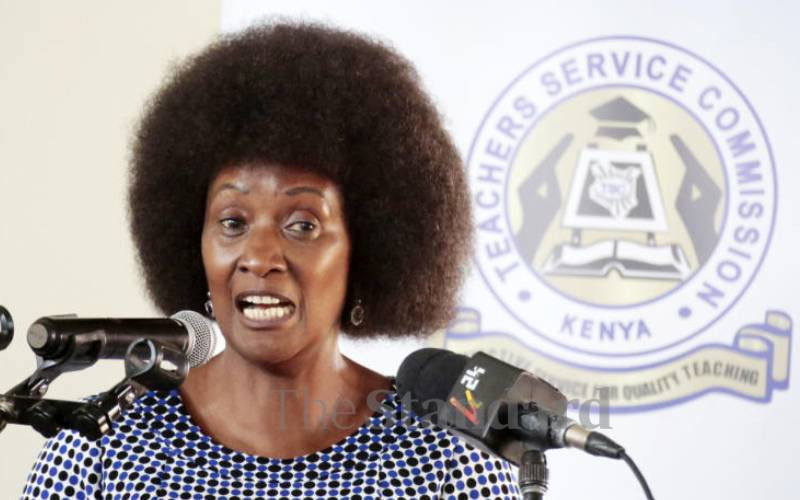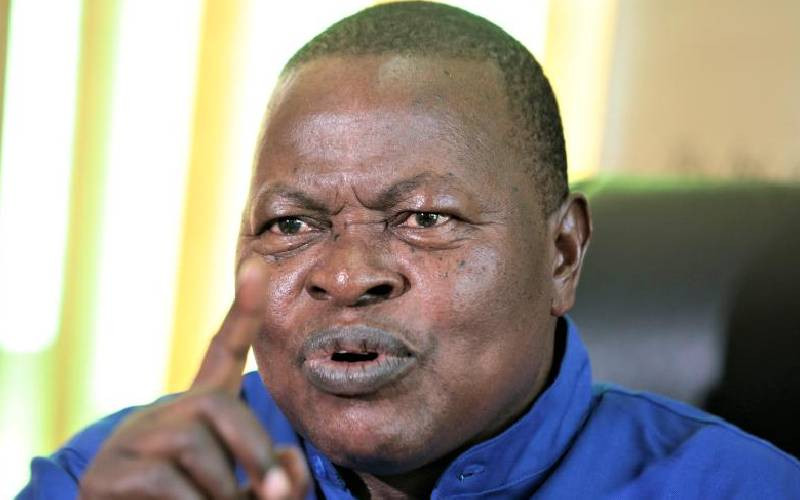More than 200,000 teachers could quit if their salaries are not adjusted. A report by the Kenya National Union of Teachers (Knut) says 76 per cent of teachers in public schools wish to leave the profession because their ‘professional and personal needs’ are not met.
Knut secretary general Wilson Sossion said this would further widen the teacher gap that currently stands at about 80,000.
The report dubbed ‘Trends of the needs of teachers in public schools in Kenya, 2015,’ mirrors findings of another study conducted last year by Education International that revealed nearly half of teachers want to quit the profession because of ‘unfavourable working conditions.’
The study categorised teachers personal needs to include salaries, allowances and recognition of their efforts by the society.
Professional needs have been classified to include capacity building, promotions, availability of proper teaching and learning tools and security of the teachers in schools.
The study says 35 per cent of teachers surveyed rated provision of their personal and professional needs as ‘poor.’
Irregular attendance
Another 25 per cent said the provision of the needs is ‘inadequate’ while 16 per cent said the services are ‘not provided at all.’
“The effect of this is that teachers do not complete the syllabus in time, they lack knowledge and teaching skills and this leads to poor quality and delivery of services,” reads the document.
The report cites rape, kidnapping, and vandalism as challenges that lead to lack of concentration among teachers as another consequence of failure by the government to meet their needs.
“Overall, these lead to truancy, seeking transfers, dropping out and irregular attendance of teachers to class,” reads the report.
Mr Sossion said the union is disturbed by the findings but noted it was not entirely unexpected.
“We knew teachers are not happy but the extent of discontent has shocked us. Now we know why the absenteeism in schools is on the rise,” he said.
Some 5,681 respondents were interviewed. Of these, 3,532 teachers were interviewed for the study. Another 903 were heads of schools. Some 1,246 parents and schools Boards of Management (BoM) were also interviewed.
Broken down, 448 teachers were from pre-school institutions with 2,242 from primary schools. Some 807 secondary school teachers were interviewed and 35 from tertiary institutions.
Stay informed. Subscribe to our newsletter
 The Standard Group Plc is a
multi-media organization with investments in media platforms spanning newspaper
print operations, television, radio broadcasting, digital and online services. The
Standard Group is recognized as a leading multi-media house in Kenya with a key
influence in matters of national and international interest.
The Standard Group Plc is a
multi-media organization with investments in media platforms spanning newspaper
print operations, television, radio broadcasting, digital and online services. The
Standard Group is recognized as a leading multi-media house in Kenya with a key
influence in matters of national and international interest.
 The Standard Group Plc is a
multi-media organization with investments in media platforms spanning newspaper
print operations, television, radio broadcasting, digital and online services. The
Standard Group is recognized as a leading multi-media house in Kenya with a key
influence in matters of national and international interest.
The Standard Group Plc is a
multi-media organization with investments in media platforms spanning newspaper
print operations, television, radio broadcasting, digital and online services. The
Standard Group is recognized as a leading multi-media house in Kenya with a key
influence in matters of national and international interest.







